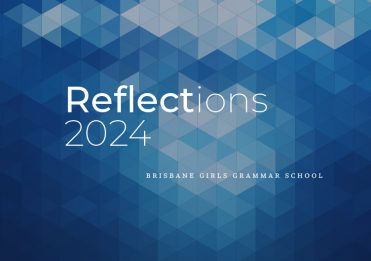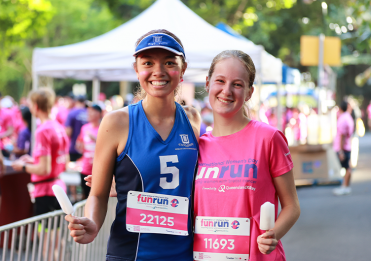Ms Julie McKay, Chair of the Board of Trustees
Partner and Chief Diversity and Inclusion Officer at PwC; Former Gender Advisor to the Chief of the Australian Defence Force
1. International Women’s Day 2019 explores the theme of ‘Balance for Better’, imploring individuals and organisations to take action to improve gender equality. What do you think are the key areas where equality needs to be improved in Australia?
Addressing gender inequality is inherently complex and I don’t want to over simplify how we work to improve it. But, I do think there are some areas that would deliver significant change:
- It is time for a government legislated quota for women in leadership roles. I know this is a view that gets a very mixed response, but all the effort and programs and advocacy simply hasn’t shifted the dial. We need something to disrupt the current state of play in Australian workplaces.
- We need to commit to dealing with sexism—in our homes, communities, educational institutions and workplaces. Ultimately, until the attitudes and behaviours that underpin gender inequality are addressed, progress will be glacial.
- We need to incentivise men to take on greater caring responsibilities, more part-time work and in doing so, change the conversation about who focuses on careers and who raises children. While not everyone has children, everyone is impacted by the traditional gender norms that too often define the opportunities we are afforded.
- We need to focus on intersectional discrimination and inequality. Until we understand and seek to solve the challenges faced by women with disabilities, culturally diverse women, people who identify as LGBTI or indigenous women, we will only ever be looking at the tip of the iceberg.
2. In your professional life, you are a Partner and Chief Diversity and Inclusion Officer at PwC, and served as Gender Advisor to the Chief of the Australian Defence Force. What led you to pursue a career in gender advocacy? Why is equality for women so important to you?
When I was at university, I worked at the YMCA of Brisbane with a wonderfully diverse group of young people, all aspiring to be leaders. However, I didn’t see a career in the NGO sector and so I went into banking after uni. Straight away, I knew it wasn’t where I wanted to be. I gravitated to the project teams working with homelessness organisations and to the Foundation, and through that work, was offered an opportunity to join Homelessness Australia. It was there that I realised that the face of homelessness in our country was a woman escaping domestic violence, or an elderly woman—and once I realised that, the rest was history.
I simply cannot accept that being born a woman means that you will not have equal access to leadership opportunities or equal access to economic opportunity. I can’t accept the rates of domestic and family violence, sexual assault and sexual harassment that exist across Australia and globally.
The more women I spoke to about their experiences—ranging from experiencing life-altering crimes to micro-aggressions in the workplace—the more my passion to make a difference to the next generation of young women grew.
I also know that gender equality is important for social wellbeing and economic growth; I find it hard to understand how more people don’t see equality for women as an urgent priority.
3. You were only 23 when you were appointed to the role of Executive Director, UN Women Australia. How did it feel to take on this responsibility? What advice do you have for young women entering the workforce?
I was braver when I was young—bolder. When I heard that UN Women was opening an Australian-based office, I had never wanted a role more. I prepared for that interview more than I studied for exams. I spoke to other people who had run NGOs about their experience, I thought about what my first three months in the role might look like and how to share that with the Board who were interviewing me.
I think young women need to back themselves—take risks and chase dreams. As they do that, never underestimate the importance of being prepared, asking for advice and reaching out to mentors.
The responsibility of the role grew with me. At first, it was ensuring that we got the basics right. Then we needed to reach out as wide as possible into the Australian community and challenge the attitudes and norms that perpetuate gender inequality. Then we had to work with government and ensure that adequate funding and focus was being given to UN Women’s work and other areas that advance women’s empowerment. I think it wasn’t until much later that I realised just what a responsibility I had—to lead such an amazing organisation but also to demonstrate that investing in young women leaders was worthwhile!
4. As Brisbane Girls Grammar School’s newly appointed Chair of the Board of Trustees, how do you hope that the School will continue to contribute to creating equality in the next 10 years? Are there current initiatives or achievements of which you are particularly proud, and are there areas in which you hope the School will grow?
Generations of Grammar Women are changing the world—each in their own different way, each with a shared sense of commitment to something larger than themselves. I am incredibly proud to be part of that legacy. I am also continually inspired when I meet or hear the stories of Old Girls—and the diversity of their experiences after school.
It is undoubtedly tough to be a teenage girl in 2019. In addition to focusing on academic results, the School’s focus on student engagement and wellbeing will continue to be a top priority for the Board, Principal and staff.
I am really excited to see BGGS embark on a major Science Learning Centre. When I think about the future of work, STEM foundations are going to be critical. Investing in a facility that will inspire all our students to explore everything that STEM subjects have to offer is one significant way we can contribute to the broader societal imperative.
5. Brisbane Girls Grammar School was established in 1875 upon the principle of equality—to provide girls the same education as their brothers. As a Grammar Woman, did this legacy have an impact on the formation of your convictions about equality for women? Do you have any role models from your time at the School?
I left school genuinely believing that women and men were equal, that women could achieve anything and that there were no barriers to gender equality. If anything, I felt let down once I left school and started experiencing all of the ways that society tries to get women to fit into gendered norms. That said, the confidence and inspiration that I found at Girls Grammar I wouldn’t trade for anything.
I am not sure I could name one role model; there were so many people who influenced me during my time at school. I had role models who were teachers—people who believed in me, inspired me and challenged me. Today, I only have to look as far as my four best friends from school to see incredible role models for women and girls. One is a musician, one is an accountant, two are lawyers—all are mums—and all are living their lives with courage, determination, integrity and kindness.
6. What other factors contributed to your belief in the empowerment of women—how did your family impact on your convictions?
Anyone who knows me would know just how influential my family are. My parents balanced supporting us to have every opportunity, with ensuring that we knew that we were very privileged and with privilege comes enormous responsibility. My mum is an amazing academic and I am sure that having a strong female role model in my life was a foundation for me. We are all very different and my parents are still baffled by some of the things I do, care about and get involved in. But, after years in different cities, we live 300 metres away from each other and I wouldn’t survive without their guidance, support, babysitting and garden maintenance!
My brother was my absolute hero. An engineer like dad, turned entrepreneur, he had a way of making you feel like you were the only person in the world when he was talking to you. He died when I was 25, and my world changed forever. Each day I try to take a bit of his courage and determination with me.
7. You are a strong advocate for the power of individual action to dismantle prejudice against women. What kind of actions can Grammar girls (and all of us) take to promote equality in daily life?
You don’t need to be Executive Director of UN Women to make a difference. The most powerful advocacy comes when every individual makes a commitment to disrupt the status quo through every day actions.
Every one of us can play an active role in supporting other girls and women—opening doors for each other, being a safe sounding board for a friend, giving someone the confidence to take a risk or follow their dream, never being involved in rumours about another girl. I know when I was at school that I was never intentionally mean to anyone, but I also know that from time to time I didn’t step in and challenge someone else who was being mean or unfair, and I regret that now.
Actively challenge the people in your life about what they are going to do to actively support gender equality. Some of my best conversations about gender equality have been with my dad about his workplace and what might have needed to be different for me to thrive there. Have the conversation with your parents about their workplaces and what they are doing to ensure that when you enter the workforce, things will be very different.
Don’t let anyone tell you that you cannot do something because you are a girl or because it isn’t something that women do. Be the first and draw strength from the many women who have been ‘first’ in their fields.
8. In 10 years’ time, when the Girls Grammar Class of 2019 return for their 10-year reunion, what do you hope that Australian workplaces look like?
I sincerely hope in 10 years’ time that our workplaces have invested in strategies to ensure that everyone can identify and reach their full potential. I hope that leaders are identified and rewarded based on their ability to lead inclusively and that we are no longer having conversations about supporting ‘initiatives like flexible work’ and that instead, these are totally normalised.
I hope that for the women who want to have children, we have found a way to relieve the pressure that so many working parents feel—through greater flexibility, more shared responsibility for care and unpaid work, and an affordable and accessible childcare system.
Between where we are and these changes are a lot of attitudinal shifts though, so I hope that our entire Girls Grammar community can lean in.




